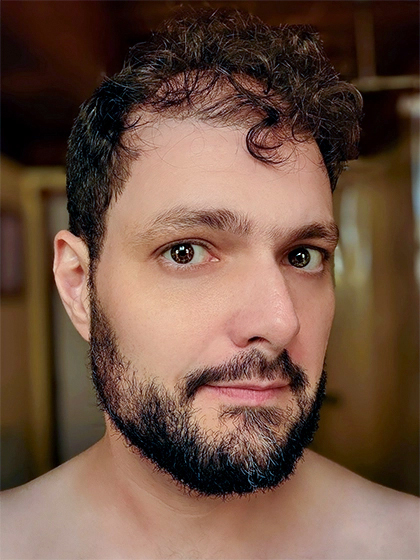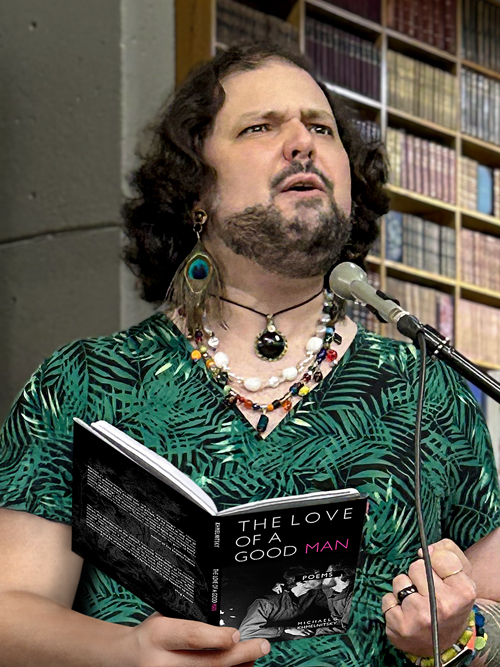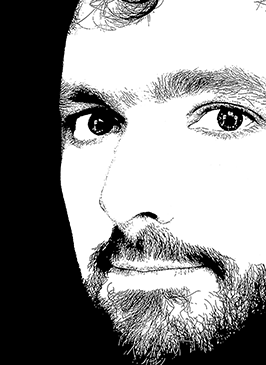
My name is Lucía M. Polis (she / her). I am a neuroqueer poet, translator, and editor. I hold a Ph.D. in literary translation studies and I have been writing and translating poetry since 1996.
I was born in Moscow, in the imaginary country known as the U.S.S.R., lived in Israel—during the Gulf War and the First Intifada—and in Canada, and then worked in Japan and the United States.
Before the COVID Pandemic, I visited more than twenty-five countries. At any given point in time, I know between three and five languages.
Aside from poems unborn, stillborn, unwritten, destroyed, or lost, I have to date created more than 1,000 poems, which have appeared in Uprooted, The Liar, Holes: An Anthology of Poems about Depths, Darkness, and Desire, Becoming: An Anthology of What-If Poems about Women and Womanhood, and in my poetry collections.
In 2005, I self-published Granville, my first poetry collection, followed by the multimedia antipoem epic Go Fish in 2006. In 2009, I completed my first large-format (11″ × 17″) poem, Silo 28, followed by its sequel Cathedral in 2010. In 2015, I finished researching and defended Sex, Lies, and Red Tape, a dissertation on Soviet censorship and mistranslation of American satire into Russian during the Cold War.

In 2023, I founded the imprint JLRB Press and published my second collection, We Were Hateful People. In 2024, I released my queer epic poem as the final section of my third, eponymous collection, The Love of a Good Man. In 2025, I republished my epic poem in my fourth book, The Love of a Good Man: The Queer Epic Poem—the first book to bear my true name—and released my fourth collection, Granville: 20th Anniversary Edition, Expanded and Revised.
I live on Vancouver Island. In time free from work, I agonize over the written line, haunt local coffee shops in colourful dresses, tend to plants, love friends, set boundaries, keep house, take photowalks, memorize verse, and go on long drives to nowhere in particular.




